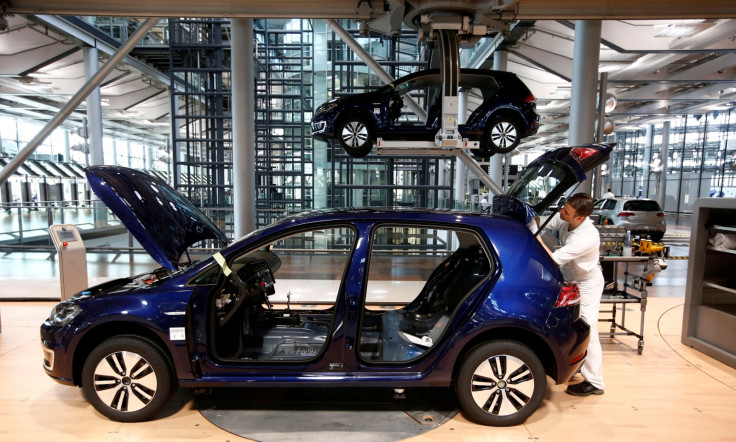GM's Cruise gets $1.2B investment, moves closer to AV launch
The self-driving subsidiary gets a funding boost in its race to launch a commercial autonomous ridesharing service.
Cruise, the autonomous vehicle (AV) subsidiary of General Motors (NYSE:GM), announced Tuesday that the company has received an additional $1.15 billion in equity investments, bringing its valuation up to $19 billion.
Over the past year, Cruise has raised $7.25 billion in funding from Honda, the Softbank Vision Fund, T. Rowe Price Associates, and GM itself. This new round of funding adds to the $2.75 billion Honda has committed to Cruise over the next 12 years (with an initial investment of $750 million) as the two companies work together on an autonomous vehicle launch.
Softbank's Vision Fund, run by Softbank Group, has previously committed $2.25 billion to Cruise. It's unclear how much Honda and Softbank are contributing (if anything) in this latest investment round.
"Developing and deploying self-driving vehicles at massive scale is the engineering challenge of our generation," Cruise CEO, and former GM president, Dan Ammann said in a press release. "Having deep resources to draw on as we pursue our mission is a critical competitive advantage."
Why this matters for Cruise and its AV plans
GM's Cruise said back in March that it plans to double its employee headcount by the end of this year (it has about 1,000 employees right now). The additional funding could help with the employee ramp-up. Cruise's careers page currently lists more than 200 available positions.
Cruise is also gearing up for its commercial launch of a ridesharing service in San Francisco later this year. Cruise will bring the service to the West Coast city first and then eventually expand it throughout the country.
While the company is helping to lead the way in autonomous vehicle technology, Alphabet's (NASDAQ:GOOG) (NASDAQ:GOOGL) Waymo beat Cruise to the commercial autonomous ridesharing market when it launched its own service in Arizona at the end of last year.
Cruise is still getting in on the ground floor of a self-driving car market that is likely to have plenty of room for competitors. The consumer mobility-as-a-service market (which includes autonomous ridesharing services) is estimated to reach more than $3 trillion by 2050. That tremendous market potential is why Cruise, Waymo, Uber, and Lyft are all focusing their attention on developing driverless vehicle tech.
While Cruise hasn't given any more specifics of when it will bring its commercial ridesharing service to market, investors should see this latest funding news as yet another sign that Cruise is getting closer to its goal. With Waymo already pushing ahead in this space and ridesharing companies testing out AVs, GM's Cruise knows that introducing this tech sooner rather than later could give it an edge over its competitors.

Even with all the efforts by Cruise and its rivals in the autonomous vehicle space, investors should remember that the AV market is still very young. It's going to take several years for any company to find a path to generating significant revenue from self-driving services. GM investors will need to be patient as Cruise builds out its tech and launches its commercial ridesharing service. But considering the potential market for this product and service, it should be worth the wait.
Suzanne Frey, an executive at Alphabet, is a member of The Motley Fool's board of directors. Chris Neiger has no position in any of the stocks mentioned. The Motley Fool owns shares of and recommends Alphabet (A shares) and Alphabet (C shares). The Motley Fool recommends Softbank Group. The Motley Fool has a disclosure policy.
This article originally appeared in The Motley Fool.





















